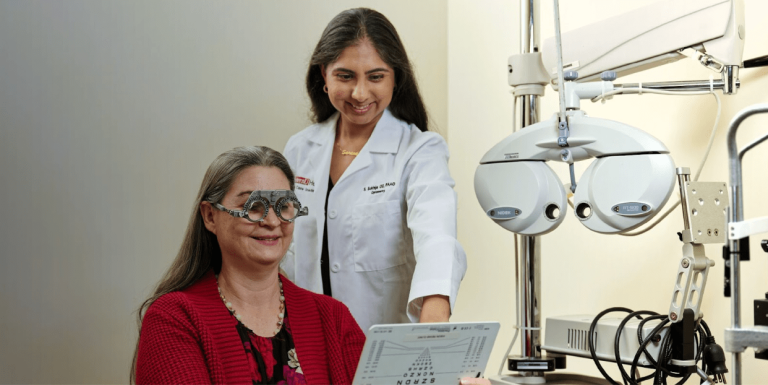
In today’s rapidly changing world, education must adapt and evolve to prepare students for the challenges and opportunities of the future. Technology has emerged as a powerful catalyst for transformation, revolutionizing the classroom experience in ways that were once unimaginable. Education expert, Dr. Michael T. Conner, Ed.D. is a leader in educational technology and stands at the forefront of leveraging technology to revolutionize education. He shares his insights on transforming the classroom experience, from personalized instruction to data-driven insights, revealing the ways in which technology is shaping the future of education.
Empowering Students to Thrive Through Personalized Learning
One of the most remarkable advancements in education is the ability to personalize the learning experience for every student. Driven by advancements in technology, personalized learning takes into account students’ individual needs, interests, and abilities.
“Personalized learning enables students to take ownership of their education and empowers them to thrive,” says Dr. Conner. “It recognizes that every student has unique strengths and challenges, and tailors instruction to meet their specific needs.”
With technology, educators can leverage adaptive learning platforms and intelligent tutoring systems to deliver customized content and support. These tools adapt to students’ progress, providing real-time feedback and adjusting the difficulty level accordingly. As a result, students can learn at their own pace, reinforcing concepts they find challenging and advancing quickly through material they grasp easily. This personalized approach not only boosts academic achievement but also enhances motivation, engagement, and overall learning outcomes.
How Data-Driven Insights Inform Instruction and Decision-Making
Data plays a pivotal role in transforming education, providing valuable insights to inform instructional practices and decision-making.
Dr. Conner notes, “Objective, unbiased data allows us to identify trends, monitor student progress, and make informed decisions that benefit both individual learners and the overall educational system.”
Through the integration of technology, educators can collect and analyze vast amounts of data on student performance, engagement, and behavior. This data-driven approach enables teachers to identify areas of strength and areas where additional support is needed. Data can identify patterns and trends that may otherwise go unnoticed, allowing educators to adapt instruction, provide targeted interventions, and ensure that every student has the opportunity to succeed.
Data-driven insights extend beyond the classroom, providing valuable information for administrators and policymakers. By analyzing data on a broader scale, education stakeholders can identify systemic challenges, measure the effectiveness of instructional strategies, and implement evidence-based practices to drive positive outcomes.
Fostering Connections and Global Engagement through Digital Collaboration
Technology has revolutionized collaboration in the classroom, breaking down barriers and enabling students to connect and engage with peers globally. Online platforms, video conferencing tools, and collaborative software have opened up a world of possibilities for collaboration and communication.
“Technology allows students to collaborate with peers from different cultures, exchange ideas, and work together on projects, fostering global engagement and preparing them for the interconnected world,” says Dr. Conner.
Through digital collaboration, students can engage in meaningful discussions, share perspectives, and collaborate on projects regardless of their physical location. This enhances their understanding of diverse cultures and perspectives while strengthening their communication, critical thinking, and problem-solving skills. Digital collaboration fosters a sense of community and belonging, as students connect with their peers and develop relationships beyond the confines of the classroom.
Nurturing Curiosity and Lifelong Learning
In this era of technological transformation, the role of the educator has evolved significantly. It is impossible to overstate the importance of educators as facilitators and cultivators of curiosity and lifelong learning.
“As educators,” says Dr. Conner, “our role is to inspire and guide students, to spark their curiosity and instill a love for learning. Technology is a tool that amplifies our impact, but the human connection remains at the heart of education.”
Teachers play a critical role in guiding students through the vast digital landscape, helping them navigate information, critically evaluate sources, and develop digital literacy skills. They serve as mentors, providing guidance and support as students explore new concepts, collaborate with peers, and develop their own unique learning paths.
The Future of Ed Tech Innovations in Enhancing Education
The future of education is undoubtedly being shaped by technology. From personalized learning experiences to data-driven insights and global collaboration, technology is transforming the way we teach and learn.
As education evolves and moves forward, it is essential to strike a balance between technology and human interaction, ensuring that the benefits of technology are harnessed while preserving the crucial role of educators in guiding and nurturing students. With a forward-thinking mindset and a commitment to innovation, we can unlock the full potential of technology to create a future of education that is engaging, inclusive, and prepares students for success in an ever-evolving world.
About Dr. Michael Conner, Ed.D.
Dr. Michael T. Conner, Ed.D. is the Founder & CEO of Agile Evolutionary Group, author of Intentional, Bold, and Unapologetic: A Guide to Transforming Schools in the AC-Stage of Education, and innovator in education systems support. He believes that approaching problems in unique ways is the key to creating positive results. He has worked in education for nearly 20 years, first as a teacher and then in positions of leadership within various New England schools. Dr. Conner completed the Harvard Business Analytics program in 2020 and is interested in using data science to provide objective, unbiased data. With his extensive experience in the field and expertise in educational technology, he has been at the forefront of driving innovation and advocating for the transformative power of technology in education.





